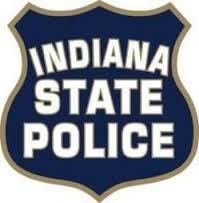University of Southern Indiana Athletics announced that USI Women’s Basketball will play the first-ever regular-season collegiate basketball game in the new Screaming Eagles Arena November 13 when it hosts the University of Central Missouri to open the 2019-20 season.
The announcement came as the Screaming Eagles released their schedule for the upcoming year.
USI begins the year with exhibition contests at the University of Kentucky October 30 and Purdue University November 3 before starting the regular season with its game against Central Missouri.
Central Missouri is one of two non-conference home games the Eagles will host in their new arena and one of 12 home games. The Jennies won the 2018 national championship and are coming off an appearance in the NCAA II Central Region Tournament semifinals a year ago.
“We are excited to be opening up the new Screaming Eagles Arena on November 13 versus national powerhouse Central Missouri,” Head Coach Rick Stein said. “We need everyone to come out and pack the stand from start to finish!”
Included in its list of home games are 10 Great Lakes Valley Conference contests, including its conference home-opener January 2 against defending NCAA II Midwest Region champion Drury University. USI hosts GLVC-newcomer Southwest Baptist University January 4 before welcoming rival Bellarmine University to Screaming Eagles Arena January 11.
USI also hosts McKendree University (January 20), Truman State University (January 23) and Quincy University (January 25). GLVC newcomer Lindenwood University visits Screaming Eagles Arena February 13, while USI hosts the University of Missouri-St. Louis February 15.
The Eagles close out their first regular-season in their new home with bouts against rivals Lewis University February 22 and the University of Indianapolis February 29.
In addition to USI’s exhibition games, USI’s non-conference road schedule includes a trip to Ferris State University November 23 and Ashland University December 22. USI also takes on Trevecca Nazarene University and the University of Tampa during the Bellarmine Thanksgiving Classic November 29-30 in Louisville, Kentucky.
USI begins GLVC play with a visit to McKendree December 3, while trips to Indianapolis (January 9), Rockhurst University (January 16), William Jewell College (January 18) and Missouri-St. Louis (January 30) are also included in the Eagles’ conference road games. USI travels to Lindenwood February 1 before visiting Maryville University (February 6) and Missouri S&T (February 8).
The Eagles conclude their GLVC road schedule with trips to the University of Illinois Springfield February 20 and Bellarmine February 27. The USI-Bellarmine game will be the last GLVC contest between the longtime rivals.
“Our entire schedule is loaded again with outstanding regional teams,” Stein said. “The GLVC will be as tough as ever with great teams up and down the schedule.”
Schedule Notes
• New home. USI is moving to a new home after posting a 363-194 record at the Physical Activities Center from the 1980-81 season to the 2018-19 campaign.
• USI in 2018-19. The Eagles went 20-9 overall and 13-5 in the GLVC a year ago. The Eagles just missed out on their second straight trip to the NCAA II Tournament after suffering a 68-57 loss to Bellarmine in the quarterfinals of the GLVC Tournament.
• Midwest Region heavy. All but one of USI’s games in 2019-20 will count as regional games, with USI’s bout against Tampa standing out as the Eagles’ only non-regional contest.
• Opponent breakdown. USI’s opponents went a combined 352-256 (.579) last year, with seven of its 2019-20 opponents qualifying for the NCAA II Tournament. The Eagles are 246-225 (.522) all-time against teams on their 2019-20 schedule.
• Returning players. The Eagles return five players from last year’s squad, including a pair of starters in senior guard Ashley Johnson (Louisville, Kentucky) and junior guard Emma DeHart (Indianapolis, Indiana).
• Newcomers. USI features six newcomers on its team this season, with four freshmen getting their first taste of collegiate basketball in 2019-20.
• Strong leadership. Three time GLVC Coach of the Year Rick Stein returns for his 21st year at the helm of USI Women’s Basketball, bringing with him a 359-217 (.623) overall record and a 212-162 (.567) mark in GLVC play. USI has won 20-or-more games in each of the last three seasons and four of the last five under Stein’s leadership.
• Ticket prices. Ticket prices for 2019-20: Courtside Seats: $400; Lower Bowl: $180; Upper Bowl: $165.
                   2018-19                           USI Opponent
Opponent          Record   Post-Season           Series Record
Central Missouri   25-7   NCAA II Central Regional   2-2
Ferris State       14-13   GLIAC Tournament           8-2
Hillsdale          17-13   GMAC Tournament           3-1
Trevecca Nazarene   12-17   GMAC Tournament           1-0
Tampa              22-9    NCAA II South Regional     1-0
McKendree          13-15   GLVC Tournament          10-1
Ashland            29-3   NCAA II Midwest Regional   8-18
Drury              35-1   NCAA II Elite Eight        4-16
Southwest Baptist   10-18   ——-            0-0
Indianapolis       11-17   ——-                    36-40
Bellarmine         17-12   GLVC Tournament          27-48
Rockhurst          10-16   ——-                    14-4
William Jewell     14-13   GLVC Tournament           6-2
Truman State       23-8   NCAA II Midwest Regional   5-4
Quincy              5-22   ——-                    21-23
Missouri-St. Louis  12-15   ——-                    34-11
Lindenwood         21-8   NCAA II Central Regional    0-0
Maryville          18-10   GLVC Tournament           8-1
Missouri-S&TÂ Â Â Â Â Â Â Â 9-16Â Â Â ——-Â Â Â Â Â Â Â Â Â Â Â Â Â Â Â Â Â Â Â Â Â 7-13
Illinois Springfield 8-18   ——-                    18-0
Lewis               27-5   NCAA II Midwest Regional   33-39
Overall            352-256 (.579)                   246-225 (.522)







